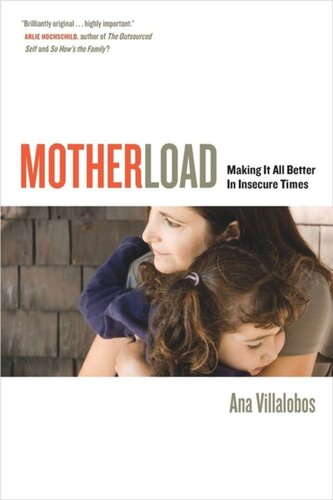

Most ebook files are in PDF format, so you can easily read them using various software such as Foxit Reader or directly on the Google Chrome browser.
Some ebook files are released by publishers in other formats such as .awz, .mobi, .epub, .fb2, etc. You may need to install specific software to read these formats on mobile/PC, such as Calibre.
Please read the tutorial at this link: https://ebookbell.com/faq
We offer FREE conversion to the popular formats you request; however, this may take some time. Therefore, right after payment, please email us, and we will try to provide the service as quickly as possible.
For some exceptional file formats or broken links (if any), please refrain from opening any disputes. Instead, email us first, and we will try to assist within a maximum of 6 hours.
EbookBell Team

5.0
108 reviewsIn a time of economic anxiety, fear of terrorism, and marital uncertainty, insecurity has become a big part of life for many American mothers. With bases of security far from guaranteed, mothers are often seeking something they can count on. In this beautifully written and accessible book, Ana Villalobos shows how mothers frequently rely on the one thing that seems sure to them: the mother-child relationship. Based on over one hundred interviews with and observations of mothers—single or married, but all experiencing varying forms of insecurity in their lives—Villalobos finds that mothers overwhelmingly expect the mothering relationship to "make it all better" for themselves and their children.
But there is a price to pay for loading this single relationship with such high expectations. Using detailed case studies, Villalobos shows how women's Herculean attempts to create various kinds of security through mothering often backfire, thereby exhausting mothers, deflecting their focus from other possible sources of security, and creating more stress. That stress is further exacerbated by dominant ideals about "good" mothering—ideals that are fraught with societal pressures and expectations that reach well beyond what mothers can actually do for their children. Pointing to hopeful alternatives, Villalobos shows how more realistic expectations about motherhood lead remarkably to greater security in families by prompting mothers to cast broader security nets, making conditions less stressful and—just as significantly—bringing greater joy in mothering.